The history of back slang: the covert language of the East End
Think Cockney rhyming slang was the only covert language of the Victorian-era East End? Introducing back slang, rhyming slang’s lesser-known, but equally creative linguistic cousin.
If you have ever overheard the word ‘yob’ to describe someone who is behaving in an unruly way or watched any of the videos that have trended on TikTok about how to speak ‘egg language’, you’ll have unknowingly encountered back slang, a form of East End slang with a 180-year history.
Have any idea what a ‘dello’, ‘dab nam’ and ‘andeevach a kool’ is? Anyone who speaks back slang would know that this clearly means that the ‘old’, ‘bad man’ should ‘have a look’. Back slang is a covert language that originated in Victorian-era London. It is thought to have been invented by costermongers in the early 1800s (street merchants who normally sold fruit and vegetables from carts), who created it so they could speak freely about things that they wanted to keep private. A 19th century East End market was somewhere you needed to make yourself heard, so being able to shout over customers in a language only your fellow traders could understand would have proved very handy indeed.
Back slang words were generally formed by saying a word as its reverse spelling, or as close to its reverse as phonetically possible. The aforementioned boy/yob is probably the most well-known example, but there was a rich vernacular available to the trader who was fluent in back slang.
The words most likely to have a back slang translation would be those that were important to conducting business, including money (yennep was a penny) and fruit and veg (storrac were carrots).
Back slang shouldn’t be confused with its better-known cousin, Cockney rhyming slang, which was another covert way of traders speaking to one another. Rather than switching letter around, Cockney rhyming slang switches whole words out with rhyming alternatives. Anyone who takes the ‘apples and pairs’ to bed or asks someone to lend them some ‘bees and honey’, is likely au-fait with Cockney rhyming slang lingo.
The first instance of recorded back slang was in the 1840s by journalist and playwright Henry Mayhew. The lives of those working in Victorian London were particularly fascinating to Mayhew, a writer who was perhaps most famous for being the co-founder of the political satire magazine, Punch. In his writing, Mayhew paints a vivid picture of each profession; everyone from ham-sandwich sellers to street fire-eaters had their livelihood depicted in great detail.
Mayhew’s journalism detailed the lives of working people, first appearing in the Morning Chronicle newspaper and then turned into a book called London Labour and the London Poor. This is where the first instance of back slang was recorded. His stories of working people included the ways they communicated with each other and he noted that that back slang likely gave costermongers a feeling of ‘belonging and superiority.’
Despite his articles being a feat of impressive investigative journalism (he collected statistics on everything from how many oysters shells his subjects disposed of to how many cigars they smoked), several of the back slang speaking traders did not take kindly to Mayhew’s portrayal of them and formed the Street Trader’s Protection Association (STPA) to guard against his ‘slander’.
Although backslang was originally thought to have been the language of grocery traders, eventually other professions started to pick it up as well. A trade that was well-known for dabbling in backslang for business were the butchers of the East End, who started using it towards the end of the 1800s. They used the language in a similar way to the costermongers, namely to talk about customers covertly while they were conducting business.
An example of back slang being used to its full effect in a local butcher would be the boss using it to tell their assistant to give a customer the beef that was about to go off first. This conversation could be done in front of the customer and they would be none the wiser that their beef (feeb) was probably past its best. This form of communication became less useful when sell-by-dates on food were introduced.
Backslang was adopted in other parts of the market trader community. Sandra Frost, 74, has lived in Bow all her life and was taught how to speak backslang by her dad. Frost says: ‘My Dad spoke backslang to my sister and I from birth, and we still speak it. In the 1940’s he worked in a pawn shop and they spoke backslang to discuss prices in front of customers.’ And David Llewlyn, who was born in St Andrews Hospital in Bromley-by-Bow in the mid-1940s, learnt from a young age what ‘rescue the enob from the nocab’ meant. Llewlyn says: ‘My father owned F W Edwards, a grocers shop in Bow. My family and I lived behind and over the shop and I’d often hear a lot of backslang being spoken to customers.’
Nowadays, it’s also adopted outside of the market trader community, with instances of famous faces using it to converse covertly. A few years ago, singer Fleur East gave a crash course on breakfast TV on back slang and tennis stars Laura Robson and Helen Watson revealed how they used it as a shared language with other British tennis stars in-between matches.
Although contemporary back slang is very different from its costermonger origins, its original purpose of creating a shared language between friends remains very much intact.
Think you know your back slang? Test your knowledge with these words below…
| delo nammow | old woman |
| delok | cold |
| doog | good |
| dunop | pound |
| eevach a kool | have a look |
| eevig | give |
| ecaf | face |
| edgabac | cabbage |
| eefink | knife |
| eelacs | scales |
| eemoking pew | coming up |
| eemosh | home |
If you liked reading this article, then take a look at our photoessay on Roman Road Market.

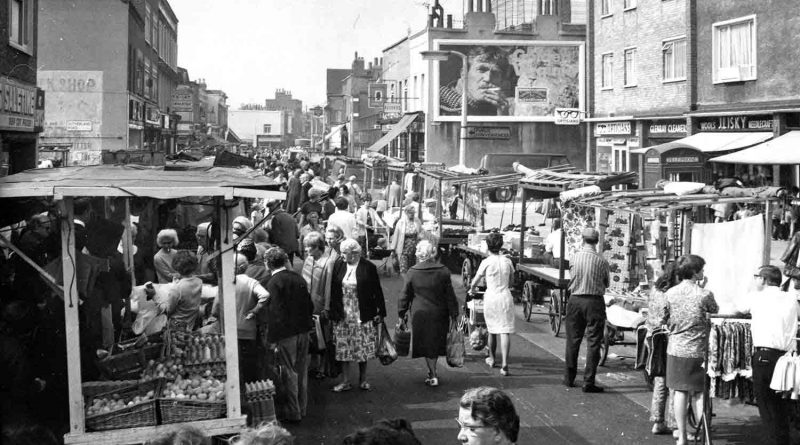


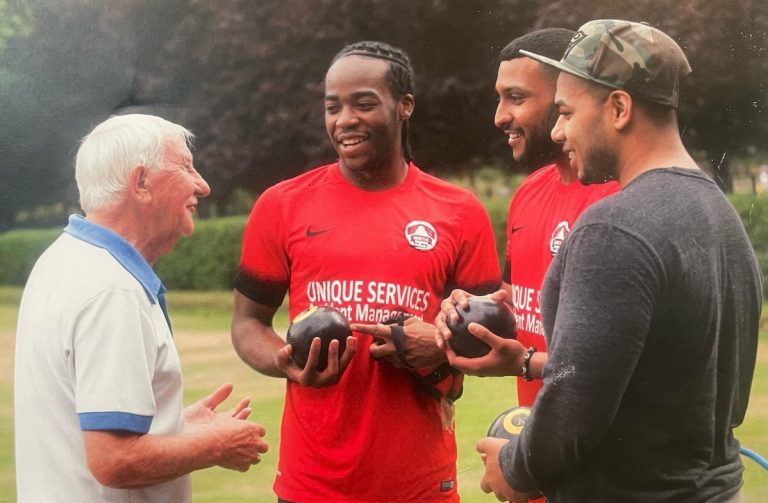
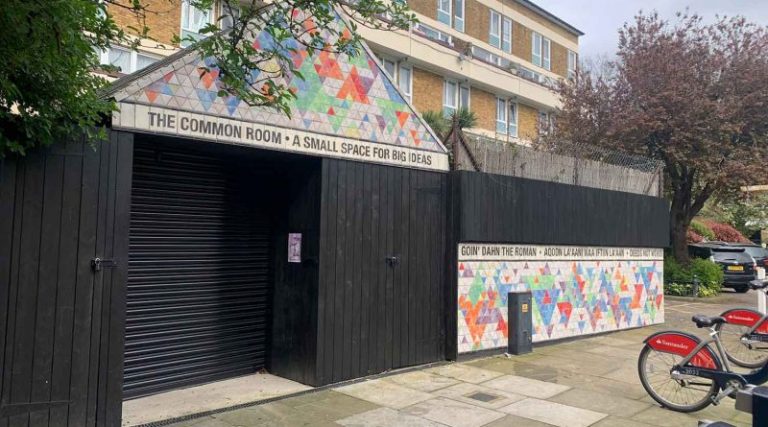
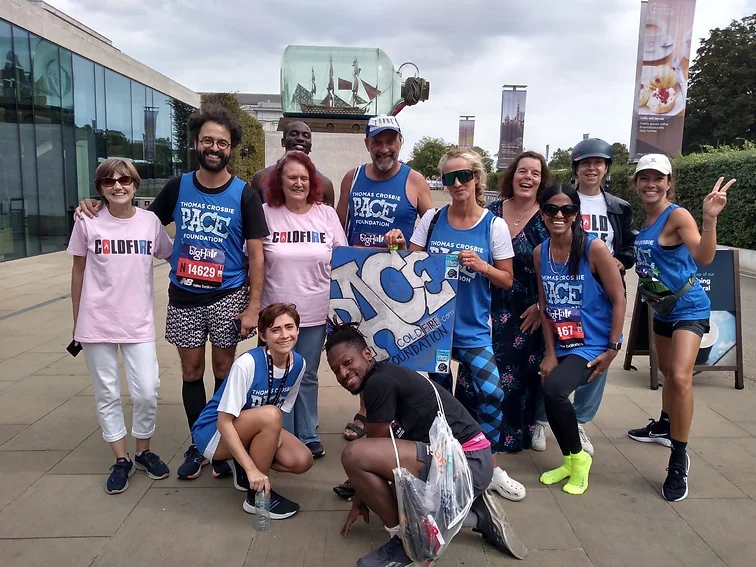
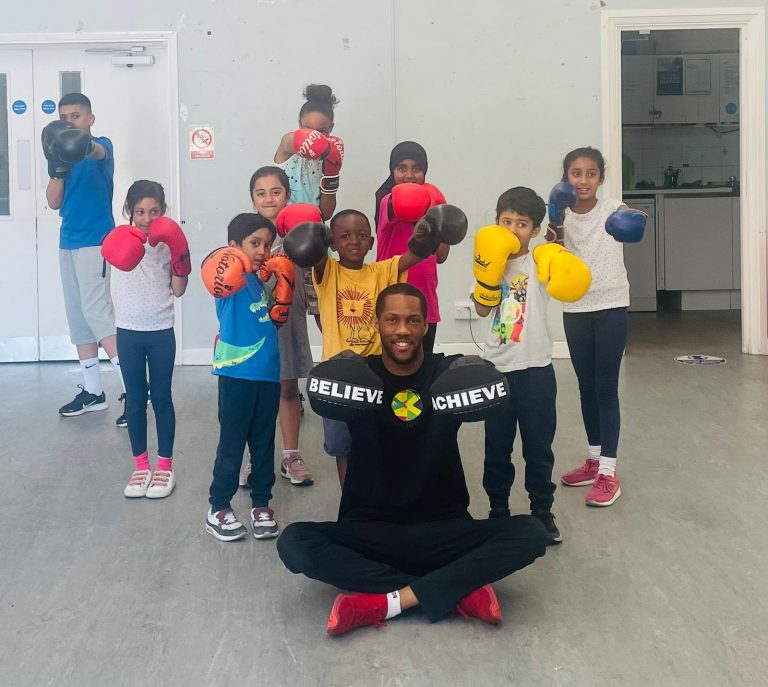

My mum used to call a woman she didn’t like a delo woc!
There’s also a crossover with polari, as in ecaf or more often used ‘eek’ for face, as in ‘varda her dolly eek’.